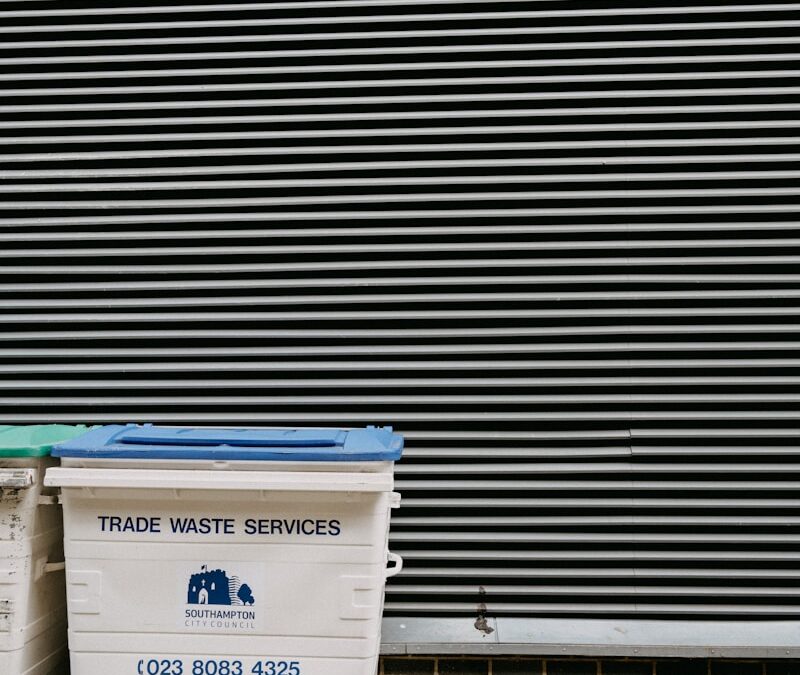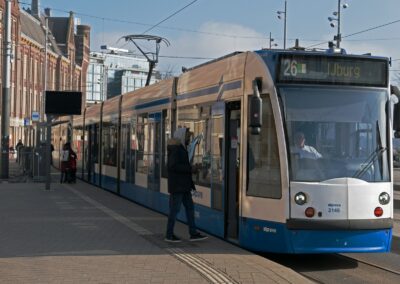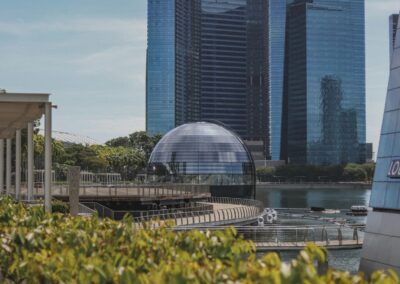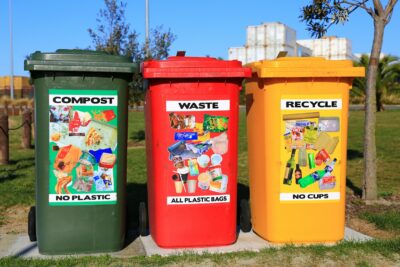Addressing the Challenges of Zero Waste in Floating Cities
Understanding the Complexity of Waste Management in Floating Cities
The concept of zero waste in floating cities is gaining traction as urban planners and environmentalists seek sustainable solutions for future urban developments. Achieving zero waste in floating cities presents unique challenges due to the confined spaces, environmental considerations, and the integration of advanced technologies. In regions like Saudi Arabia and the UAE, where innovative urban projects are continuously developed, addressing these challenges is crucial for long-term sustainability.
One primary challenge is the limited space available for waste processing facilities on floating structures. Traditional waste management systems, which rely on large landfills or incineration plants, are not feasible for floating cities. This necessitates the development of compact and efficient waste processing technologies that can be integrated into the urban fabric without occupying excessive space. In cities like Dubai, where space is a premium commodity, innovative solutions are essential to manage waste effectively within the constraints of floating urban environments.
Another significant challenge is the diverse types of waste generated in floating cities. These urban areas produce various waste streams, including organic waste, plastics, electronic waste, and hazardous materials. Developing a comprehensive waste management strategy that addresses all these waste types requires advanced sorting, recycling, and disposal technologies. In Riyadh, the focus on smart city initiatives has led to the exploration of AI-powered waste sorting systems that enhance the efficiency and accuracy of waste separation, ensuring that recyclable materials are effectively processed and diverted from landfills.
Furthermore, the environmental impact of waste disposal in floating cities must be carefully managed to prevent pollution of surrounding water bodies. Traditional waste disposal methods, such as landfilling and open dumping, are not viable options due to the risk of contaminating the marine ecosystem. Instead, floating cities must adopt sustainable waste treatment methods, such as anaerobic digestion and composting, to minimize their ecological footprint. In Saudi Arabia, the commitment to environmental conservation drives the adoption of eco-friendly waste management practices in floating urban developments.
Innovative Solutions for Zero Waste Achievements
To overcome the challenges of achieving zero waste in floating cities, innovative solutions are being developed that leverage cutting-edge technologies and sustainable practices. These solutions aim to create self-sufficient urban environments where waste is minimized, resources are efficiently utilized, and environmental impacts are mitigated.
One of the most promising solutions is the implementation of circular economy principles in floating cities. The circular economy model emphasizes the reuse, recycling, and regeneration of materials to create a closed-loop system where waste is minimized, and resources are continually cycled back into the production process. In the UAE, initiatives like the Dubai Circular Economy Strategy promote the adoption of circular economy practices in urban planning, encouraging businesses and residents to reduce waste generation and embrace sustainable consumption patterns.
Advanced waste-to-energy technologies also play a crucial role in achieving zero waste in floating cities. These technologies convert waste materials into valuable energy resources, such as electricity and heat, through processes like pyrolysis, gasification, and anaerobic digestion. By harnessing the energy potential of waste, floating cities can reduce their reliance on fossil fuels and lower their carbon footprint. In Riyadh, the integration of waste-to-energy plants in urban developments aligns with the city’s vision of becoming a leader in sustainable energy solutions.
Moreover, the use of smart waste management systems, powered by artificial intelligence and the Internet of Things (IoT), enhances the efficiency and effectiveness of waste collection and processing in floating cities. AI algorithms can optimize waste collection routes, predict waste generation patterns, and identify areas where waste reduction efforts are needed. IoT-enabled sensors can monitor waste levels in real-time, ensuring timely collection and preventing overflow. In Saudi Arabia, smart city projects incorporate these advanced technologies to create intelligent waste management systems that contribute to zero waste goals.
Community Engagement and Behavioral Change
Achieving zero waste in floating cities requires more than just technological innovations; it also necessitates active community engagement and behavioral change. Residents and businesses in floating cities must adopt sustainable practices and embrace a zero-waste mindset to contribute to the overall success of waste reduction efforts.
Educational campaigns and public awareness initiatives play a vital role in fostering a culture of sustainability within floating cities. By educating residents about the importance of waste reduction, recycling, and responsible consumption, urban planners can encourage positive behavioral change. In Dubai, environmental education programs and community workshops are organized to raise awareness about the benefits of zero waste and inspire residents to take action.
Incentive programs and regulatory measures also support the achievement of zero waste goals in floating cities. Governments and municipalities can implement policies that promote waste reduction and recycling, such as extended producer responsibility (EPR) schemes, which require manufacturers to take responsibility for the disposal of their products. Financial incentives, such as tax rebates and grants, can encourage businesses to adopt sustainable practices and invest in waste reduction technologies. In Riyadh, regulatory frameworks are being developed to support zero waste initiatives and ensure compliance with environmental standards.
Furthermore, community participation in waste management activities, such as composting and recycling programs, enhances the effectiveness of zero waste strategies. By involving residents in these activities, floating cities can create a sense of ownership and responsibility for waste reduction efforts. In Saudi Arabia, community-driven waste management projects empower residents to contribute to sustainability goals and foster a collective commitment to zero waste.
The Role of Leadership and Management in Zero Waste Initiatives
Strategic Leadership for Sustainable Waste Management
Effective leadership and management are crucial for the successful implementation of zero waste in floating cities. Leaders in government, business, and urban planning must champion zero waste initiatives and ensure that they align with broader sustainability goals.
Leaders should advocate for policies and regulations that support zero waste practices. This includes setting standards for waste reduction, recycling, and sustainable consumption. In regions like Saudi Arabia and the UAE, where environmental sustainability is a priority, strategic leadership is essential for guiding the development of zero waste urban projects.
Moreover, leaders must foster collaboration among various stakeholders, including waste management companies, environmental organizations, and community groups. By promoting a multidisciplinary approach, leaders can ensure that zero waste initiatives are designed and implemented to meet diverse community needs. In cities like Riyadh and Dubai, where public-private partnerships drive urban development, effective collaboration is key to achieving impactful and sustainable outcomes.
Project Management in Zero Waste Initiatives
The successful execution of zero waste projects in floating cities requires meticulous project management. Project managers must coordinate efforts across various disciplines, ensuring that projects are effectively planned, executed, and monitored.
Effective project management involves setting clear objectives, timelines, and performance metrics for zero waste initiatives. Managers must ensure that projects align with broader urban planning and environmental goals, such as reducing carbon emissions, promoting circular economy practices, and enhancing community well-being. Regular assessments and feedback loops are essential for identifying challenges and making necessary adjustments to ensure that projects stay on track and achieve their intended impact.
Resource allocation is another critical aspect of project management. Managers must ensure that adequate funding, personnel, and technology resources are dedicated to zero waste projects. This includes leveraging public-private partnerships to mobilize resources and expertise. By effectively managing resources and fostering collaboration, project managers can maximize the impact of zero waste initiatives and promote sustainable innovation.
Promoting Innovation Through Leadership and Collaboration
The promotion of innovation through leadership and collaboration is essential for the success of zero waste in floating cities. Leaders in business and government must drive the adoption of innovative technologies and practices, setting an example for others to follow.
Leaders should prioritize research and development initiatives that explore new technologies and methods for enhancing zero waste practices. This includes supporting pilot projects, funding academic research, and collaborating with industry experts. By investing in innovation, leaders can ensure that their regions remain at the forefront of sustainable urban development practices and continue to set global standards for waste management and environmental conservation.
Moreover, leaders should engage with stakeholders, including residents, businesses, and policymakers, to promote awareness and understanding of the benefits of zero waste initiatives. This involves organizing workshops, seminars, and public consultations to educate stakeholders about the potential of innovative waste management practices. In cities like Riyadh and Dubai, where public participation is encouraged, these efforts can foster a sense of community and shared responsibility for sustainability goals.
Conclusion: Advancing Zero Waste in Floating Cities
Achieving zero waste in floating cities is a complex but essential goal for promoting environmental sustainability and enhancing urban living. By addressing the challenges of waste management, leveraging innovative solutions, and fostering community engagement, regions like Saudi Arabia and the UAE can lead the way in creating sustainable and resilient urban environments. The future of floating cities holds immense potential for reducing environmental impact and promoting sustainable development, but it must be approached with a commitment to innovation and collaboration to ensure that these advancements benefit society as a whole.
#ZeroWaste #FloatingCities #Sustainability #InnovativeSolutions #EnvironmentalChallenges #SaudiArabia #UAE #Riyadh #Dubai #ArtificialIntelligence #Blockchain #TheMetaverse #GenerativeAI #BusinessSuccess #LeadershipSkills























